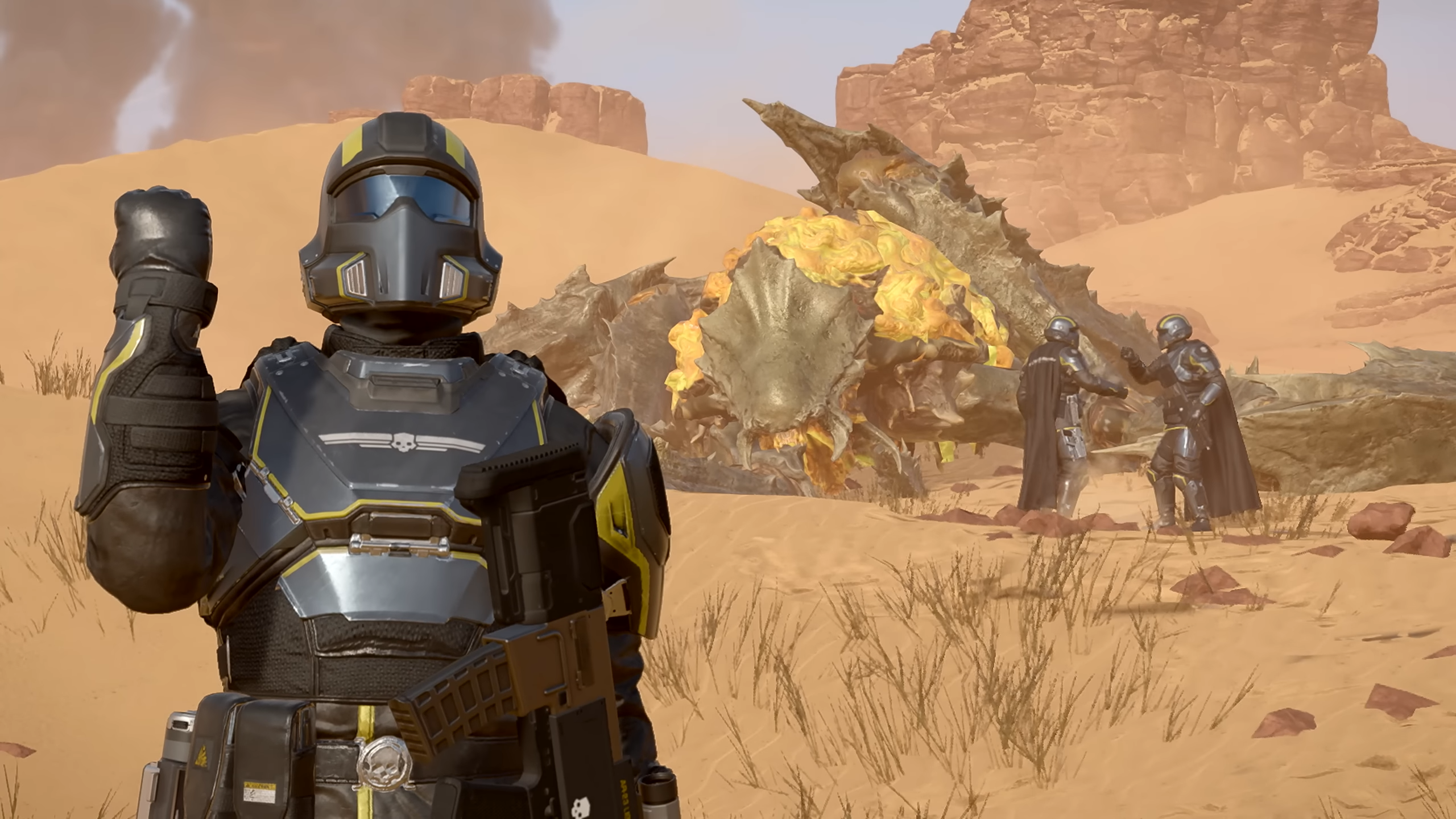
Helldivers 2 started off exactly the way everyone should've expected it to: with server issues. Like many people, I figured it would struggle for a bit simply because it's an online game and these things are like concrete in that they tend to be messy until they have time to set. What I didn't expect was for the sequel to a fairly old, relatively niche twin-stick co-op shooter to become the new game of the moment, taking the baton from Palworld in the 2024 marathon.
All told, Helldivers 2's breakneck launch has actually been pretty smooth. The measure of these is how they feel after a few days, not a few hours, though it's hard to tell yourself that when you've just been blocked or disconnected for the millionth time while you're trying to play with friends and defend Super Earth during your limited game time. However, the measure of live service games as a whole is how they feel after a month or so, and some five weeks from launch, it's hard to think of a recent game that's stuck the landing as cleanly as Helldivers 2. It's not only made a compelling case for why it needs to be a live service game, it's also loudly proven, on the heels of games like WB's Suicide Squad: Kill the Justice League and Ubisoft's Skull and Bones, that live services can be extremely and uniquely fun.
What makes Helldivers 2 fun
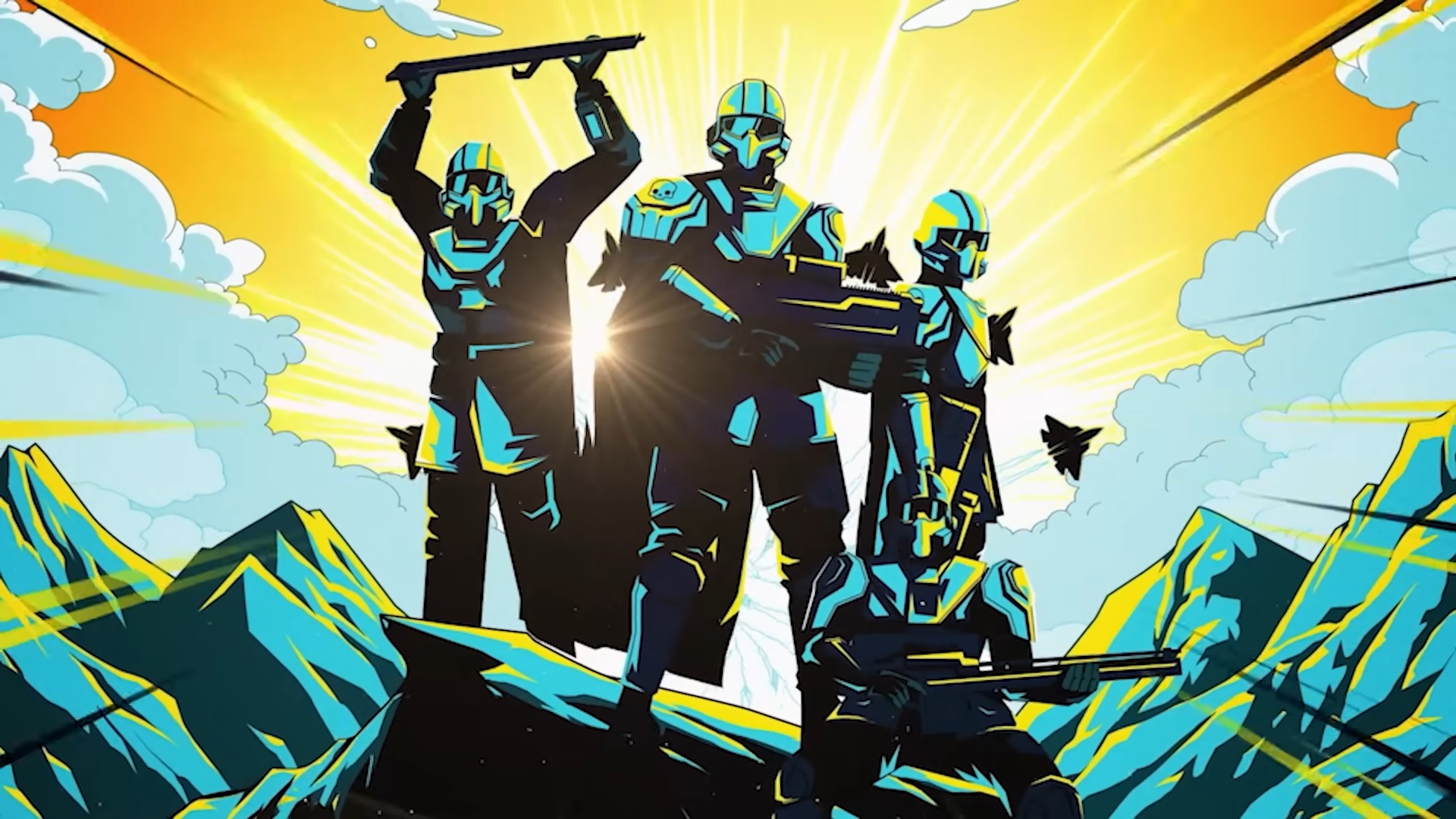
The best thing I can say about Helldivers 2 is that it reminds me of Risk of Rain 2. It's become my friend group's new pick-up-and-play hangout. It's easy to learn, it is immediately fun, a group of any size can have a good time with it, every session is unpredictable, and most importantly, it doesn't slow you down with any live service bullshit. You don't have to rush to level 100 to play with friends. You don't have to buy the premium season pass. You don't have to min-max 50 numbers and memorize a glossary of jargon to make an effective build. There is no prologue, no homework, nothing to make you sheepishly assure your friends "it gets good after 20 hours."
Helldivers 2 gets good after 20 seconds and only gets better from there. You are an armored pile of soldier meat animated purely by a love of democracy so strong that any person on the receiving end of such love should by rights file a restraining order. You have a gun and some magic baseballs that summon various flavors of the wrath of god. And you are hard-wired to paper the walls with bugs and bots. Get in there, maggot.
Helldivers 2 is simultaneously a no-nonsense co-op shooter with tight gunplay and approachable mechanics as well as an engrossing live service game that will devour a lot of your time and reward you with compelling progression. Building the right loadout for each mission is extremely important, but also fast and easy. There's no RNG carrot to chase, fractal skill trees, or affixes for +2.7% extra damage to bugs. Helldivers 2 works in big, digestible chunks with clear effects that are obvious in gameplay. Progression feels mostly horizontal, with more options added in naturally, but is almost secretly vertical in that you do unlock demonstrably better weapons and tools as you rank up. You can tell you're getting stronger, not because a number told you so, but because the bugs and bots are dying faster.
That's the core appeal of Helldivers 2: it is fun to play. Let's hear it for video games, everyone. All Arrowhead really had to do was get out of its own way and not throw a wrench in that fun. This is the part that so many live services mess up, often by rationing the fun on a daily or weekly basis, saddling players with FOMO nailed to tedious grinds, or by quietly (and then less quietly) shuffling microtransactions on stage. What the developer has done instead is not only give the gameplay all the room it needs, but also steadily embellish that experience in ways that genuinely surprise, partly by throwing unannounced new features at players as literal surprises, and also by ripping up the playbook that we've disappointingly come to expect from live service games.
What keeps Helldivers 2 fun
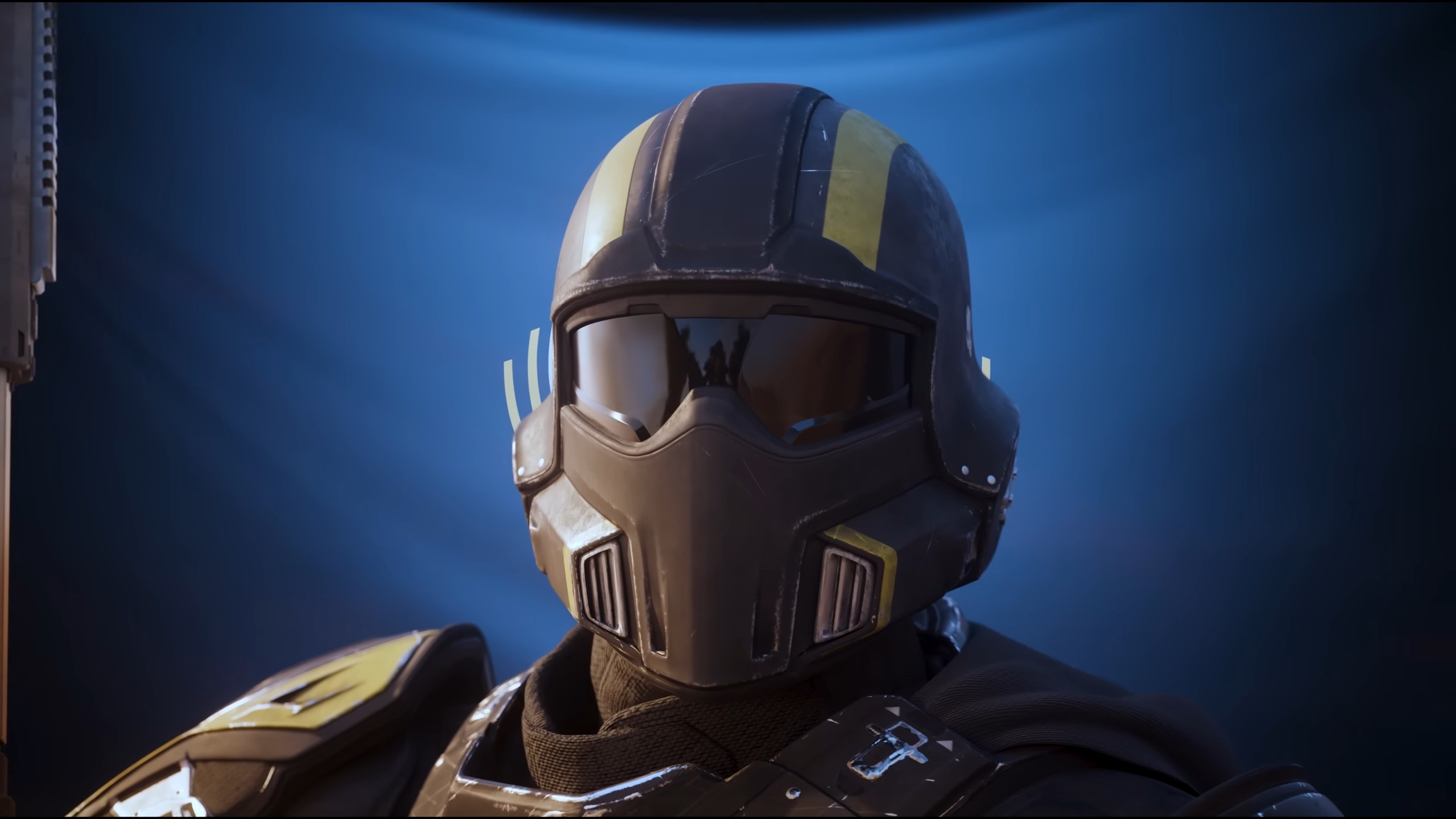
Helldivers 2 is lightly monetized, only $40, and virtually free of FOMO. Its battle pass-style Warbonds don't expire and you can easily earn enough currency to purchase the premium ones instead of breaking out the credit card. Even then, the premium buyables are pretty cheap and never meta-warping.
The only FOMO you might feel would be tied to emergent narrative events like the Malevelon assault or the ongoing TCS deployment – masterstrokes of game master Joel, who, albeit not single-handedly, has brought a human element to the game that makes its roadmap feel more dynamic. It's more of a map to follow into the unknown, and less of a road that idly vanishes in the rear-view mirror. But that's not FOMO, really. It's not an arbitrarily time-limited resource weighing on your conscience. It's honest motivation to play. These moments are fun to engage with, feel organic, and are regularly replaced by new shifts in the warfront that are just as interesting.
The game actually feels alive. Players were recently attacked by new flying bugs, and Arrowhead's only communication on this surprise update was calling the players who'd reported it undemocratic traitors. The propaganda motif is pitch-perfect and lends a knowing smile to the studio's community engagement. It's all a big in-joke that players have quickly adopted for widespread roleplaying – the envy, I assume, of all gaming community managers. On the player side, it's exciting to think that you don't truly know what awaits you every time you drop in. Did you just find something new? Maybe! It's a very real possibility. Those discoveries and surprises, even just the potential for them, not only keep players on their toes, they give folks a sense of agency and impact within a living world. I found this thing; what comes next?
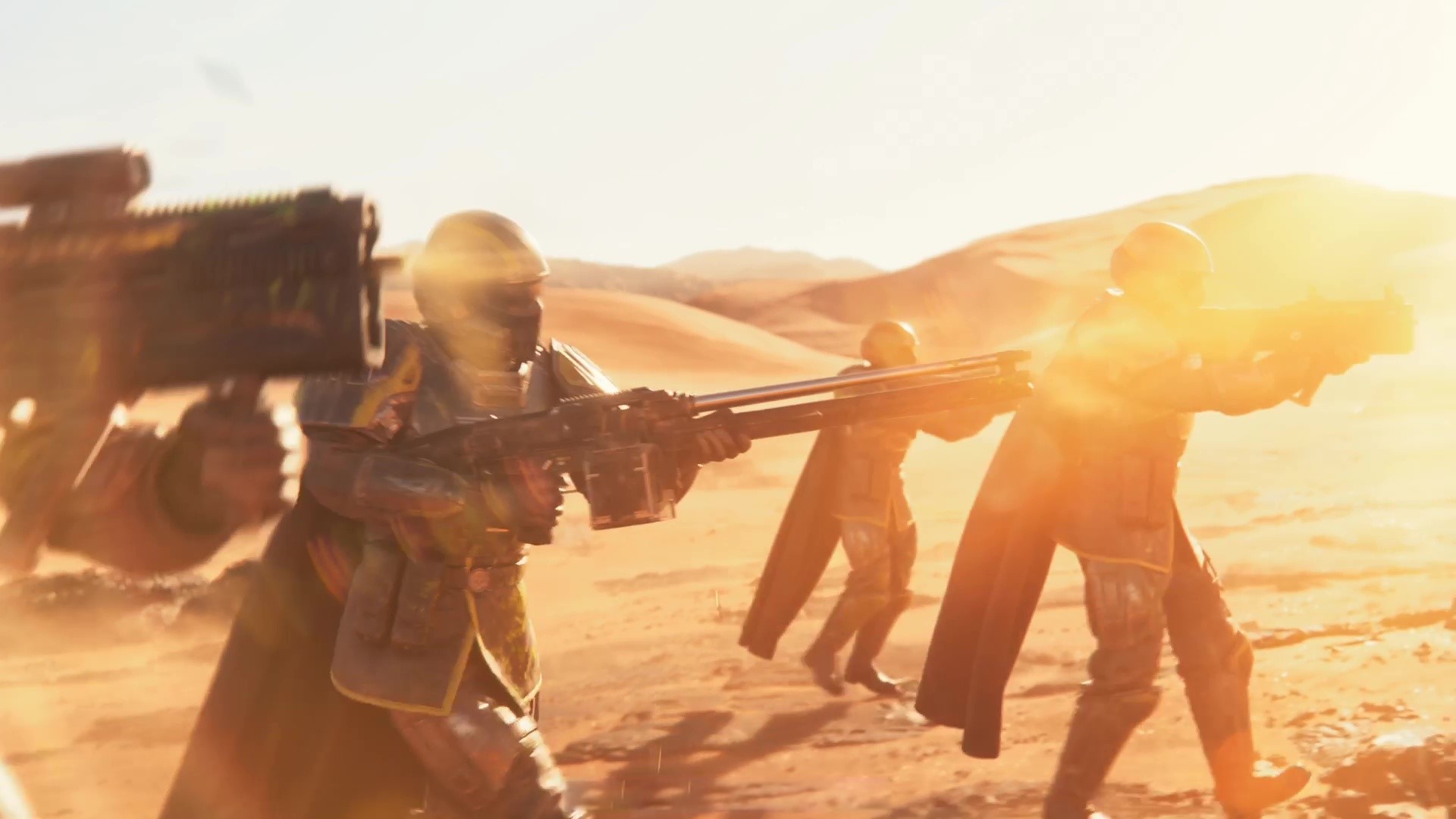
I'm reminded of the unannounced Exotic missions that consistently light the Destiny 2 community on fire. This is where live service games are at their best – in their ability to catch players off guard and throw them down a rabbit hole using updates deployed without warning or fanfare. You can't really get this experience in a traditional, one-and-done game. It's the truest acid test for a live service: does this actually need to be live? Does this game being tethered to servers meaningfully enhance the day-to-day experience, which is not just the base gameplay, or does it primarily enhance the publisher's ability to monetize over a longer period?
Speaking of updates, Helldivers 2 negotiated its first major balance hiccup pretty cleanly, too. I'm going to pick on Destiny 2 again here, because thanks to its community, which I've followed closely for 10 years now, I recognized all the rhetoric flying around the Helldivers 2 community after the nerfs dropped. "Do the devs even play this game?" said the Angry Gamer. "I'd like to see them try high-difficulty missions on a livestream to prove that the game is well-balanced. My railgun can't even shoot the cap off a bottle of soda now." And on and on. Some complaints were justified, but the blowback was overly hasty for such a new game. The real problem was always elsewhere. The game just had too damn many heavily armored enemies on higher difficulties, and the first patch not only didn't solve this pain point, it weakened some popular anti-heavy tools.
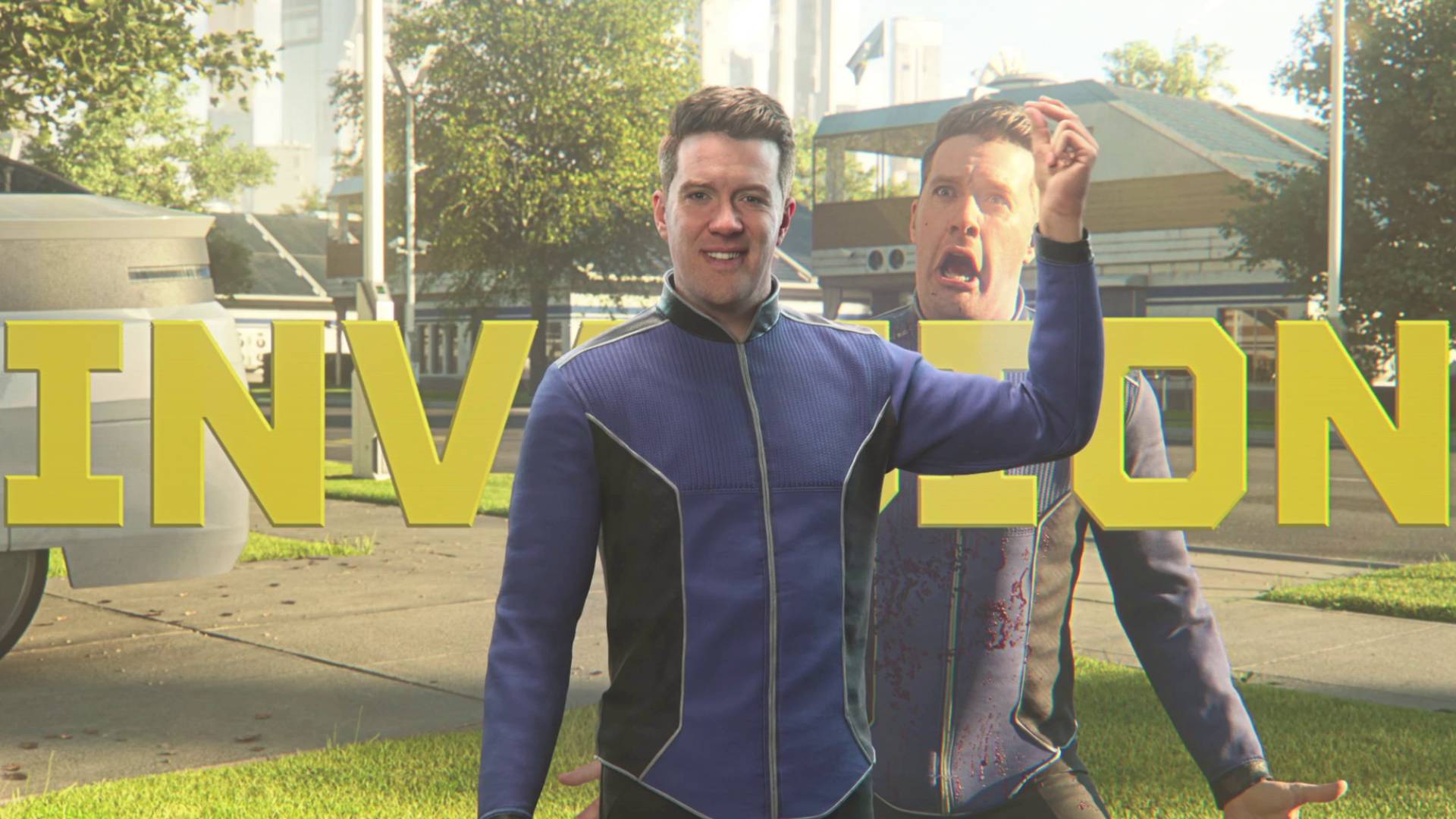
Overall, the patch did make the weapon meta healthier, and in a follow-up update – which probably could've prevented some headache and moaning if announced sooner – Arrowhead toned down the armored enemies. Bam, problem solved. There's a new Warbond out filled with more enticing bot and bug killers too, and the game's consequently playing better than ever. (Full rundown of the Helldivers 2 Cutting Edge Warbond here.) Nerfs can be painful, but they can also be essential for the health of a game. All it takes is a spoonful of sugar to make the medicine go down – something Diablo 4, as a topical example, learned far more painfully after its first major patch and season.
Even for folks who aren't playing Helldivers 2 – and why the hell aren't you – it should be encouraging to see a game like this find such success. As platforms like PlayStation invest in live services and publishers like Warner Bros inexplicably double down on the things despite flops like Suicide Squad, this is the kind of game I want them to cheat off of. Too often, these games are fun despite being live services, while Helldivers 2 is only as good as it is precisely because it's a live experience.







